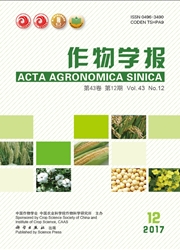

 中文摘要:
中文摘要:
低温胁迫是影响茶树产量、生长发育和地域分布的重要环境因子之一,需要通过冷驯化的诱导来提高其抗寒性。DNA甲基化是植物表观遗传的重要方式,环境胁迫会引起植物DNA甲基化状态的改变。为研究DNA甲基化是否参与茶树的低温响应,本研究利用甲基化敏感扩增多态性技术(MSAP)和高效液相色谱法(HPLC),分析了不同冷驯化阶段茶树基因组DNA甲基化水平及状态变化。MSAP分析结果表明,50对选择性扩增引物在对照、驯化后和脱驯化样品中分别扩增出905、968和970个甲基化条带,总甲基化位点比例分别为50.6%、54.1%和54.2%。与未驯化的样品相比,冷驯化后和脱驯化的样品基因组DNA甲基化水平升高。HPLC的检测结果与MSAP结果类似。进一步分析甲基化模式发现,与对照相比,茶树冷驯化过程中同时发生了甲基化和去甲基化现象,但总体变化趋势表现为甲基化水平的增加。表明茶树在抗寒响应中出现DNA甲基化现象。
 英文摘要:
英文摘要:
Low temperature is one of the most critical environmental factors that limit tea plant growth, survival and geographical distribution. Tea plant can enhance its cold tolerance after undergoing a period of cold acclimation. DNA methylation is one of the epigenetic phenomena in plant, and can be altered by environmental stress. In order to explore the relationship between DNA methylation and low temperature stress response in tea plant, methylation sensitive amplified polymorphism(MSAP) and high performance liquid chromatography(HPLC) were used to analyze the changes of DNA methylation level and pattern in this study. The MSAP results showed that 905, 968, and 970 methylated bands were amplified with 50 selected primers in non-acclimated sample(CK), fully acclimated and de-acclimated samples, with the methylation levels of 50.6%, 54.1%, and 54.2%, respectively. DNA methylation levels in fully acclimated and de-acclimated samples were increased compared with CK. HPLC results were similar with MSAP results. In addition, DNA demethylation and methylation were both occurred during cold acclimation, but the DNA methylation level was increased more than the DNA demethylation level. These results indicated that DNA methylation may participate in the response of cold acclimation in tea plant.
 同期刊论文项目
同期刊论文项目
 同项目期刊论文
同项目期刊论文
 Isolation and expressionanalysis of 18 CsbZIP genesimplicated in abiotic stress responses in the tea
Isolation and expressionanalysis of 18 CsbZIP genesimplicated in abiotic stress responses in the tea Effects of cold acclimationon sugar metabolism and sugar-related gene expression in tea plant during
Effects of cold acclimationon sugar metabolism and sugar-related gene expression in tea plant during 期刊信息
期刊信息
